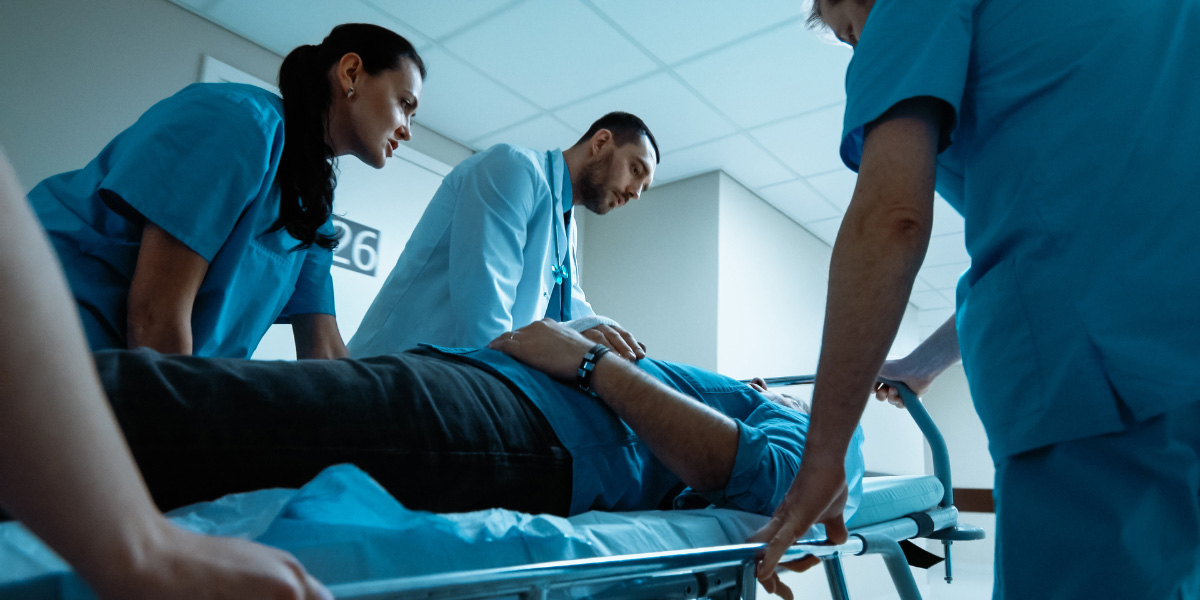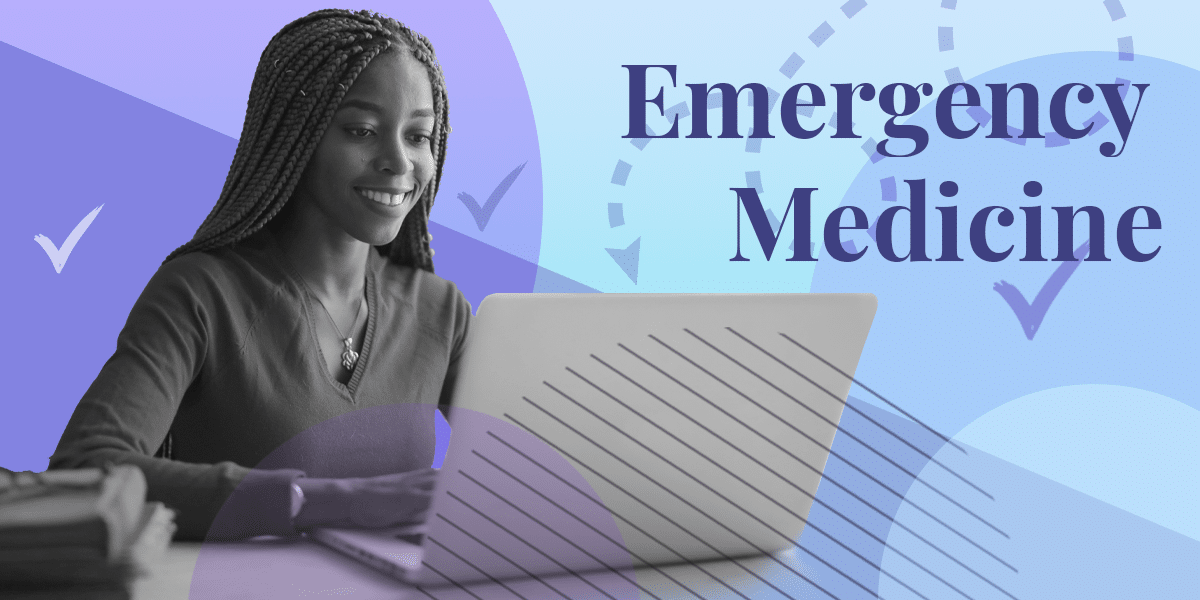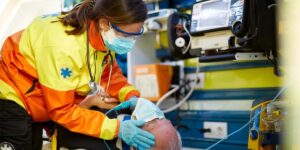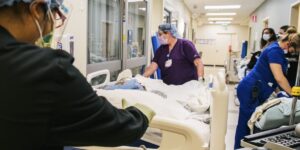In today’s fast-paced world, medical emergencies can strike at any moment. When seconds count, having access to the right information and resources can be a lifesaver. This comprehensive guide to emergency medicine equips you with essential knowledge and insights to ensure you’re prepared for the unexpected.
The Importance of Emergency Medicine
Emergency medicine is a critical aspect of healthcare, encompassing a wide range of situations, from minor injuries to life-threatening conditions. By understanding the fundamentals of emergency care, you can make a significant difference in someone’s life, possibly even your own.
Rapid Response and Preparedness
Immediate Action Matters
In any emergency, time is of the essence. Knowing how to react swiftly and efficiently can prevent further harm and increase the chances of a positive outcome. Whether it’s a heart attack, a severe injury, or a sudden illness, being prepared to take immediate action is crucial.
First Aid and Beyond
Learning basic first aid techniques is a fundamental skill everyone should possess. From dressing wounds to performing CPR, these skills can be invaluable in an emergency. Beyond first aid, understanding when and how to contact professional help is equally essential.
Understanding Emergency Situations
Recognizing the Signs
Many emergencies can be identified by specific symptoms or signs. Whether it’s chest pain, difficulty breathing, or severe bleeding, recognizing these indicators is the first step in providing proper care.
Triaging Patients
In emergency medicine, prioritizing patients based on the severity of their condition is a vital skill. Triage helps ensure that those in the most critical condition receive immediate attention.
Medical Tools and Equipment
Life-Saving Technology
Advancements in medical technology have revolutionized emergency care. From defibrillators to automated external defibrillators (AEDs), having knowledge of how to use these tools can be life-saving.
Medications and Their Administration
Understanding the appropriate use and administration of emergency medications is another critical aspect of emergency medicine. Whether it’s epinephrine for severe allergic reactions or aspirin for chest pain, knowing when and how to administer these medications can be the difference between life and death.
Staying Calm Under Pressure
The Power of Composure
In high-stress situations, maintaining composure is essential. Panic can lead to errors in judgment, which can be detrimental in an emergency. Training and mental preparedness play a significant role in staying calm and collected.
Training and Education
Continuous Learning
Emergency medicine is a field that evolves rapidly. Staying up to date with the latest techniques and treatments through training and education is vital for all healthcare professionals and even the general public.
The Role of Communication
Effective Communication Saves Lives
Clear and concise communication is a cornerstone of emergency medicine. Whether you’re a healthcare professional or a concerned bystander, being able to relay important information to emergency responders can greatly impact the quality of care provided.
The 911 Call
In most emergencies, the first step is to dial 911. When making this call, be prepared to provide essential information, such as the type of emergency, your location, and the number of individuals involved. Remain on the line with the operator, follow their instructions, and stay as calm as possible.
Safety in Emergency Situations
Ensuring Your Safety
While it’s natural to want to help, your safety should always come first. In hazardous situations, such as car accidents or natural disasters, ensure you are out of harm’s way before assisting others.
Protective Gear
In some emergencies, like chemical spills or fires, having protective gear on hand can be a lifesaver. Understanding how to use safety equipment is crucial.
Emotional Support
Compassion and Empathy
Providing emotional support is an often-overlooked but vital aspect of emergency care. Patients and their loved ones may be frightened or anxious. Offering a comforting presence and words of reassurance can have a significant impact on their well-being.
Community Involvement
Joining Local Initiatives
Getting involved in local emergency response initiatives, such as community CPR classes or disaster preparedness programs, can further enhance your knowledge and ability to provide aid in critical situations.
The Evolving Landscape
Technological Advancements
Emergency medicine continually benefits from cutting-edge technology. From telemedicine for remote consultations to AI-driven diagnostics, the field is always advancing. Staying informed about these innovations can be a game-changer in the delivery of care.
Disaster Preparedness
Natural disasters, pandemics, and other large-scale emergencies require specialized knowledge. Learning about disaster preparedness and response is essential, not only for healthcare professionals but also for the community as a whole.
Home Emergency Kits
Being Self-Reliant
In addition to personal knowledge, having a well-equipped emergency kit at home is a prudent measure. This kit should include essential items such as non-perishable food, water, a flashlight, a first-aid kit, and important documents.

Regular Maintenance
It’s vital to ensure that your emergency kit is regularly maintained and up to date. Check expiration dates, replace items that have been used, and adjust the contents according to your family’s needs.
Navigating Common Emergencies
Choking and Heimlich Maneuver
Knowing how to perform the Heimlich maneuver can save someone from choking. Understanding the correct technique and when to use it is a valuable skill.
CPR: Cardiopulmonary Resuscitation
Cardiopulmonary resuscitation (CPR) is a life-saving technique that can be administered to individuals who have experienced cardiac arrest. Familiarizing yourself with CPR can be the difference between life and death in certain situations.
Community Safety
Spreading Knowledge
One person’s knowledge can have a ripple effect throughout the community. Consider organizing or participating in workshops, seminars, or awareness campaigns to spread the word about emergency medicine and preparedness.
Final Thoughts
Emergency medicine is not limited to the walls of a hospital or the expertise of healthcare professionals. It’s a shared responsibility that we all should embrace. By gaining knowledge, staying prepared, and being willing to help, you become an essential part of a network that can save lives and provide comfort in times of distress.
The Power of Preparedness
Always Be Ready
In summary, emergency medicine is not just for professionals; it’s a skill that everyone should possess. By understanding the importance of immediate action, the signs of emergencies, and how to use essential tools, you can be a valuable asset in times of crisis.
Remember, emergencies can happen when you least expect them. Being prepared is not only responsible but a testament to your commitment to the well-being of your community.
So, will you be the one who takes the initiative to learn and be prepared? In the world of emergency medicine, knowledge truly is power, and your readiness could be the difference between life and death.




